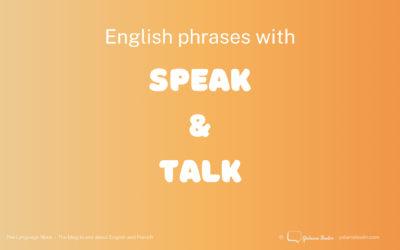In English, the word ‘very‘ is more than common, it is overused!
It is one of the first words people learn when they study English. It is even a word people actually know before they start studying the language! How many times a day do we hear or read this little word?
It is everywhere : very well, very good, very interesting, very small, very bad, very common, very… boring!
In “Dead Poets Society”, English professor John Keating tells his class to avoid using it:
“So avoid using the word ‘very’ because it’s lazy. A man is not very tired, he is exhausted. Don’t use very sad, use morose. Language was invented for one reason, boys – to woo women – and, in that endeavor, laziness will not do. It also won’t do in your essays.”
Even if your aim is not to woo women, make a change, try other words, vary your vocabulary and be more specific and detailed when you speak or write in English. There are numerous alternatives! Let’s look at a few of them:
really, highly, absolutely, greatly, deliciously, positively, terribly, remarkably, indubitably, brilliantly, unusually, awfully, significantly, deeply, surprisingly, impressively, spectacularly, genuinely…
Give it a try: you will enjoy it and so will your audience!
Are there other words you use to avoid using the word “very”? Which ones? Let me know!





The meaning of “very” has changed, I suspect. It has something to do with the truth so “I am very tired” means “Truly I am tired” or, more quaintly, “Verily I am tired”. “Very tired” and “exhausted” are not necessarily the same thing. So I can cope with “very” for emphasis; but “very, very” is an abomination!
Thank you for your comment Brian. I love this word “verily”, quaint and lovely! We can find it in Chaucer’s works spelt “verraily”, which reminded me “very” comes from Middle English “verray”, which comes from the French “verai”, the archaic form of today’s word “vrai”. Since “vrai” means true, we’re back to what you pointed out: very has something to do with the truth.
I would add for learners of English that “verily” means exactly that: truly, in truth.
Verily, Brian, I agree with you “very, very” certainly isn’t stylish!